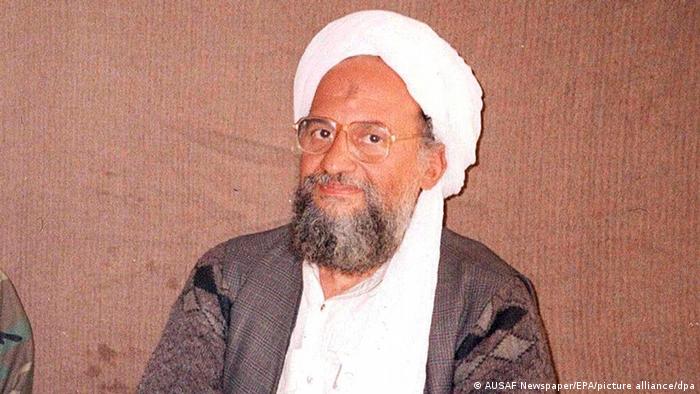
"Justice has been delivered," President Joe Biden said soon after a US drone strike killed al-Qaida's top leader Ayman al-Zawahiri on Monday.
"This terrorist leader is no more," he added.
Al-Zawahiri, 71, took the reins of the militant group after Osama bin Laden was assassinated by US troops in Pakistan in 2011. The US had been hunting al-Zawahiri for decades.
Biden said that he hoped the al-Qaida chief's killing brings "one more measure of closure" to families of the victims of the September 11, 2001, terrorist attacks orchestrated by al-Qaida. Washington accused the Taliban of sheltering the 9/11 masterminds and invaded the country in October that year.
After the withdrawal of NATO troops from Afghanistan in 2021, the Taliban toppled President Ashraf Ghani's government and retook Kabul.
The US president also said that al-Zawahiri had moved to Kabul to reunite with his immediate family. "No matter where you hide, the United States will find you and take you out," he said.
Al-Zawahiri's presence in Afghanistan, however, indicates that al-Qaida started regrouping in Afghanistan following the US withdrawal from the war-torn country. His killing is likely to further complicate Washington's ties with Afghanistan's new rulers, who, for years, have denied any link to the militant group.
Is al-Qaida regrouping in Afghanistan?
The Taliban leaders in Kabul were quick to condemn the US drone strike, calling it a violation of their agreement with Washington in 2020.
A Taliban source familiar with the situation told DW on condition of anonymity that the targeted house was located in Kabul's Wazir Akbar Khan area, where senior Taliban leaders also live. Residents told DW that the Taliban have cordoned off the area.
But all this raises the question: What was al-Zawahiri doing in that neighborhood?
Ali Ahmad Jalali, Afghanistan's former interior minister and a professor at the National Defense University in Washington, believes al-Zawahiri's killing has embarrassed the Taliban.
"It has proven how unreliable they are. They have been telling the international community for years there is no al-Qaida presence in Afghanistan, but al-Qaida's top leader was staying in downtown Kabul," Jalali told DW.
A recent UN Security Council report expressed concern over the rise of al-Qaida in Afghanistan, saying the group helped the Taliban seize power in the country last year. According to the report, al-Qaida leaders have enjoyed greater freedom in Afghanistan since the Taliban captured Kabul but have largely confined themselves to advising and supporting the Islamic fundamentalist group.
A blow to Taliban's efforts to be recognized
Since seizing power, the Taliban have been pressing the international community to recognize them as Afghanistan's legitimate rulers.
International recognition is crucial for the Taliban to avoid a possible economic collapse. Millions of Afghans are jobless and their bank accounts are frozen. Many people are selling their possessions to buy food, and urban communities are facing food insecurity on levels similar to rural areas for the first time.
In January, the United Nations made the "biggest-ever appeal" for humanitarian aid for a single country, saying it needed $4.4 billion (€3.9 billion) for Afghanistan to prevent the "world's most rapidly growing humanitarian crisis" from deteriorating further.
But the international community has been reluctant to hand over the funds directly to the Taliban, fearing that they would use the money to buy weapons. For the same reason, Washington has refused to unfreeze Afghanistan's bank assets.
The fact that al-Zawahiri was hiding in Kabul is only likely to further dent Taliban efforts to get support from the international community.